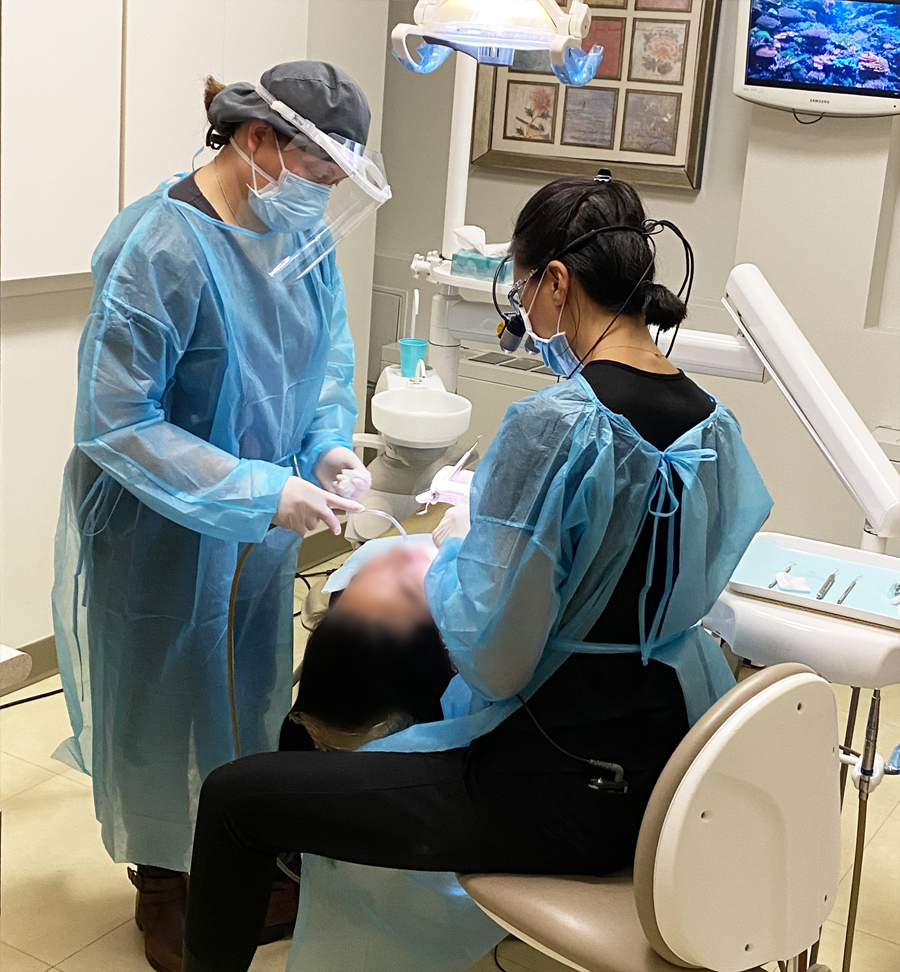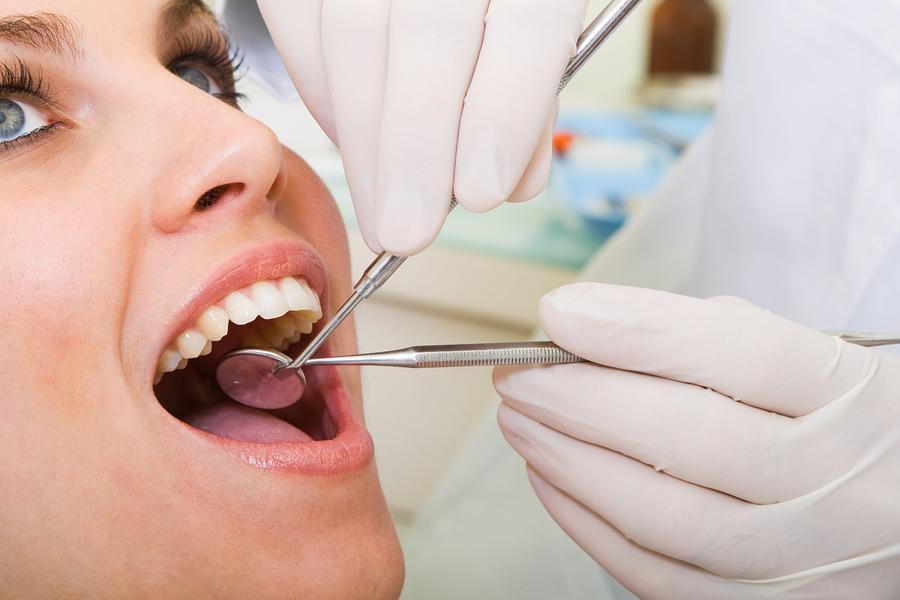Discover the Top Dentist Eugene Oregon Residents Count On for Exceptional Care
Discover the Top Dentist Eugene Oregon Residents Count On for Exceptional Care
Blog Article
Learn More About Constant Dental Issues Your Dental Professional Can Fix
Understanding frequent oral problems is crucial for maintaining optimal dental health. Concerns such as tooth cavities, gum tissue condition, tooth sensitivity, poor breath, and dental cavity are typical yet often neglected up until they end up being severe. Dental experts have the experience to identify and deal with these problems, therefore protecting against additional issues. Routine oral visits and customized care strategies can deal with these problems properly, making certain a healthier and brighter smile. Yet what details treatments do dental experts utilize to combat these issues, and how can early intervention make a distinction? The response to these inquiries provide useful understandings right into securing your dental health.
Tooth Cavities
Tooth cavities, additionally referred to as tooth decays, are a common oral health and wellness issue triggered by the demineralization of tooth enamel as a result of acid production from microbial plaque. This process starts when germs in the mouth metabolize sugars and starches from food, producing acids that erode the enamel. If not resolved promptly, this disintegration can permeate deeper into the tooth, affecting the dentin and ultimately the pulp, potentially bring about severe pain and infection.
The onset of tooth cavity development frequently present as white areas on the tooth surface area, suggesting preliminary demineralization. As the procedure advances, these places can turn into black or brownish sores, signifying much more substantial decay. Regular oral exams are crucial for early discovery, as dental caries in their inceptive stages can be treated with remineralization strategies, such as fluoride treatments.
Once a tooth cavity has actually created, corrective intervention is needed. Dentists commonly eliminate the decayed part of the tooth and fill up the cavity with materials such as composite resin, amalgam, or ceramic. In a lot more severe instances, a crown or root canal treatment may be needed. Safety nets, including great dental hygiene practices and nutritional adjustments, play a pivotal function in alleviating the danger of dental caries.
Periodontal Disease
While cavities represent a significant issue for dental wellness, another vital concern that requires attention is periodontal illness. Also known as gum condition, gum disease is an inflammatory condition impacting the tissues bordering and sustaining the teeth. It is largely triggered by the build-up of plaque-- a sticky movie of germs that bases on teeth.
Gum condition progresses via phases, beginning with gingivitis, identified by soreness, swelling, and bleeding gum tissues (dentist eugene oregon). If left unattended, gingivitis can rise to periodontitis, where the internal layer of the gum tissue and bone retreat from the teeth, creating pockets that become infected. In time, the toxins produced by the bacteria damage down the bone and connective cells that hold teeth in place, potentially resulting in missing teeth
Very early discovery and treatment are essential. Expert oral cleanings and improved dental health practices, such as brushing two times everyday and flossing, can manage gingivitis. For more sophisticated phases, therapies may include scaling and origin planing, antibiotics, and even surgical interventions.
Routine dental exams play a critical role in taking care of and preventing gum tissue disease. Dental practitioners can identify very early indicators and suggest ideal treatments, ensuring the upkeep of healthy gum tissues and general dental wellness.
Tooth Sensitivity
Tooth sensitivity affects countless individuals worldwide, presenting a typical yet typically traumatic oral concern. This problem arises when the enamel, the outermost safety layer of the teeth, is endangered, revealing the underlying dentin. The dentin includes tiny tubules that lead straight to the dental pulp, where nerves stay. When subjected to stimuli such as warm, cool, sweet, or acidic substances, these nerves are caused, causing sharp pain or pain.
A number of variables add to enamel disintegration and subsequent tooth sensitivity, consisting of hostile brushing, acidic foods and drinks, gum economic crisis, and bruxism (teeth grinding) In addition, oral procedures such as teeth lightening can temporarily heighten level of sensitivity.
Negative Breath
Another prevalent oral issue that impacts people' everyday lives is bad breath, clinically called halitosis. Halitosis often stems from poor oral hygiene, which permits food particles to continue to be in the mouth, promoting microbial development.

Referrals may entail enhancing dental hygiene techniques, such as regular brushing and flossing, utilizing anti-bacterial mouthwashes, staying hydrated, and dealing with any oral concerns. Efficient administration of bad breath not just improves oral wellness yet additionally substantially enhances quality of life.
Dental Cavity

Preventing dental cavity includes a combination of excellent dental health practices and routine oral examinations. Cleaning teeth a minimum of twice daily with fluoride tooth paste, flossing to get rid of plaque in between teeth, and restricting the consumption of sweet foods and beverages are vital preventative actions. Fluoride therapies, oral sealers, and specialist cleansings supplied by a dentist can also play a significant role in fortifying enamel and avoiding decay.
Dental professionals can remove decayed tissue and restore the tooth with dental fillings made from materials such as composite resin, amalgam, or porcelain. By attending to tooth decay quickly, dental experts help maintain oral structure and function, making sure lasting dental health and wellness.
Final Thought
Addressing common oral worries such as tooth cavities, gum condition, tooth level of sensitivity, halitosis, and dental cavity is vital for preserving optimal oral wellness and total wellness. Dentists visit here possess the proficiency to detect and treat these problems effectively, making sure customized take care of each person. Regular dental check-ups and safety nets are important in recognizing and managing these issues early, advertising a much healthier and more positive smile over a life time.

Tooth degeneration, likewise known as oral caries, takes place when the enamel, the outer layer of the tooth, is eroded by acids generated by germs in the mouth. Brushing teeth at the very least twice daily with fluoride tooth paste, flossing to eliminate plaque in between teeth, and limiting the consumption of sugary foods and drinks are necessary precautionary actions.Attending to common oral issues such as dental caries, gum condition, tooth sensitivity, negative breath, and tooth decay is crucial for preserving optimum oral wellness and general health.
Report this page